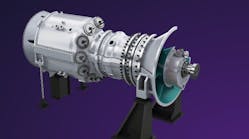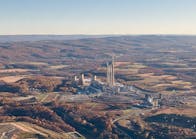Duke, JV partners focus on converting North Carolina landfill gas to RNG
Sustainability investment firm Pacolet Milliken has completed a joint venture (JV) investment with renewable biogas assets developer Evensol.
The JV, in partnership with Duke Energy, will own and operate two renewable natural gas (RNG) projects at North Carolina landfills. The Upper Piedmont Renewables and Foothills Renewables projects (UP&F) will convert landfill gas into RNG to supply low-carbon fuel to homes, vehicles and businesses.
Evensol broke ground on the two projects in the fourth quarter of 2021. Upon completion, both projects are expected to produce around 500,000 dekatherms of RNG annually.
This marks Pacolet’s first investment in RNG and is expected to meet its financial and environmental, social, and governance goals.
“We continue to see Evensol, UP&F and future RNG developments as a blueprint for how we address environmental challenges, and at the same time, grow shareholder value,” Lance Jordan, Chief Investment Officer of Power & Infrastructure at Pacolet, said. “We believe this is the start of a long-standing partnership with Evensol and will actively look to pursue additional investments and projects in the RNG space.”
Featuring Enchanted Rock Solutions and the Electric Power Research Institute
Based in Sisters, Oregon, Evensol was founded in 2013 to create value for its partners, investors, and project counterparties through the selective acquisition and development of renewable fuels-based energy assets, with particular focus on the biomass and biogas sectors throughout the U.S. and abroad.
Headquartered in Greenville, South Carolina, Pacolet is a family-owned investment firm that owns and manages a diverse set of real estate and power and infrastructure assets located across the U.S.
Duke Energy is a Charlotte, North Carolina-based electric power and natural gas holding company which owns utilities providing electricity to millions of customers in the Carolinas, Florida, Indiana and other areas.
U.S. landfills are the third largest source of methane emissions in the U.S., according to reports. Environmental scientists rank methane multiple times worse than carbon dioxide as a greenhouse gas.





